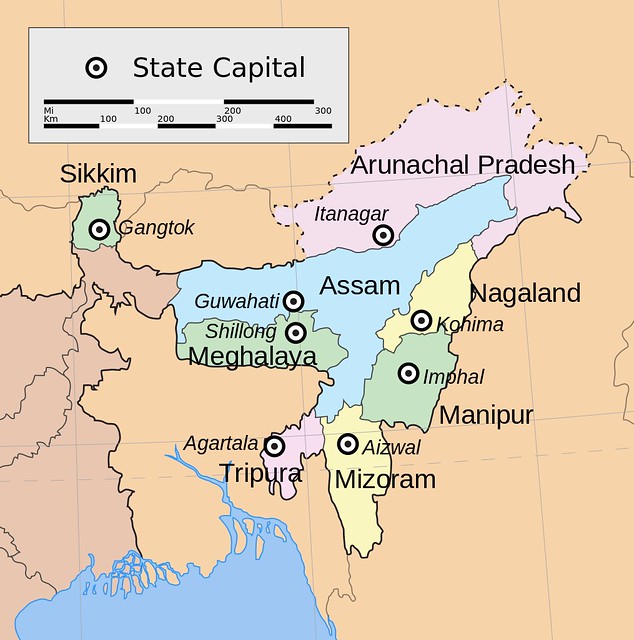By Abdul Gani, TwoCircles.net ,
Guwahati: The move to include the Northeast in the post graduate course for the first time at Delhi based Jamia Millia Islamia has been welcomed by all in the region. Students, scholars and civil society in general have expressed their views that it should increase further in other universities as well which will help in ‘bridging the gap’.
Union minister of state (Independent Charge) for Development of North Eastern Region (DoNER) Jitendra Singh said that to bring mainstream India closer to the North-East Region (NER), the first ever Post-Graduate Course in North-eastern Studies will be introduced from next year.
Accordingly, it will start from the forthcoming semester beginning August 2015, Jamia Millia Islamia University, New Delhi will start an ‘Option Paper’ in North-eastern Studies for students undertaking exam for Masters Degree in the University.
Jitendra Singh said this after a detailed briefing by Vice Chancellor of Jamia Millia University, Talat Ahmad and Director, Centre for North East Studies and Policy Research, Professor Sanjoy Hazarika.
While complimenting Jamia Millia authorities for this initiative, Jitendra Singh said an institutionalized study and research on Northeast India will provide inputs for professionals and policy makers on key issues relating to the region and thus help create a bridge between the policy making desk and the realities on the ground.
Vice Chancellor, Talat Ahmad said that while the Optional Papers for the North-eastern Studies for post-graduate students will start from the current session, the university plans to start a full-fledged Master’s Degree in North-eastern Studies from the next session. He said, the curriculum of the course will be comprehensive and cover diverse aspects of Northeast India including history, geography, heritage and current affairs.
Sanjoy Hazarika told TwoCircles.net that all the details have been finalized. “There will be a paper which will be divided in three units. It’s an optional choice credit paper. It will feature history, politics, freedom movement and social traditions of the region among others,” he said.
Guwahati based social entrepreneur Ranjan K Baruah said that other universities should also try to incorporate similar centre because people of the country needs to know more about the northeast region.
“Understanding north east is a challenge as there is diversity from different perspectives. I guess this kind of centre would be a resource hub for the academicians and all other who are interested to know about the region. Development after conflicts is only possible through well research and academic institutions can carry out this research hence there may be more of such centre in different parts of the country. I would appeal to academic institutions to take action for social transformation after their research and findings,” Baruah said.
Gertrude Lamare, a research scholar at Jawaharlal Nehru University in New Delhi who hails from Shillong said that the institutionalization of North East Studies in universities across the country is important in terms of sensitization and also for the purpose of having a marginalized region, along with its people and cultures, at the centre of national knowledge structures.
“I also locate this development within a contemporary phenomenon of marketing the North East, where various shows, festivals and the like, with the theme of ‘North East’ are being organized. Therefore, there needs to be a sense of criticality when observing these trends because one cannot deny that there is a huge market for North East India at the moment, whether in the cultural, economic or educational sphere,” she said.
Jamia Millia Islamia was the first central university to set up a Centre for North East Studies and Policy Research in 2009. Since then it has been conducting several seminars and cultural programmes and building resources.


